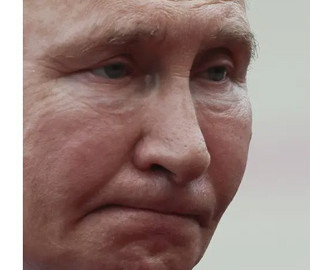
The world reacts with disbelief to Putin's claims about the Azerbaijan Airlines plane crash.
Russia has almost certainly shot down another civilian plane. An Azerbaijan Airlines plane crashed in Aktau, Kazakhstan, on the morning of December 25, killing 38 people and injuring 29 others. The plane was shot down by a Russian surface-to-air missile.
Russia has responded to the tragedy with its usual mix of confusion and disinformation. In a telephone conversation with his Azerbaijani counterpart Ilham Aliyev, Vladimir Putin apologized for the “tragic incident that occurred in Russian airspace,” but did not take responsibility for the disaster.
Russian media outlets are publishing conspiracy theories to hide the inconvenient truth about the causes of the crash. Former Kremlin adviser Sergei Markov blamed the downing of the plane on a Ukrainian drone that carried out an errant strike. Force majeure claims, such as engine failure and a collision with a flock of migratory birds, have also been widely circulated, notes Samuel Ramani, a reporter for The Telegraph.
This propaganda strategy of lies mirrors the Kremlin's response to the disaster of Malaysia Airlines flight MH17 in July 2014, which was shot down by a Buk surface-to-air missile system in Russian-occupied eastern Ukraine, but with one key difference: then Russian disinformation was much more effective than now.
This time, there are signs that Russian disinformation is starting to backfire. The Kremlin’s refusal to take responsibility for the incident has shaken international confidence in the safety of Russian airspace. Israeli airline El-Al, FlyDubai and Kazakhstan’s Qazaq Air are among the carriers that have either reduced or indefinitely suspended flights to Russia.
Ramani notes that the West must proactively exploit new vulnerabilities in Russian disinformation.
Earlier, Mark Galeotti wrote in The Times that the Azerbaijan Airlines plane crash in Kazakhstan could seriously damage Putin. The author compares the incident to a similar tragedy during the time of former KGB chief Yuri Andropov, which significantly weakened the Soviet regime.

